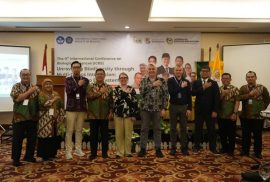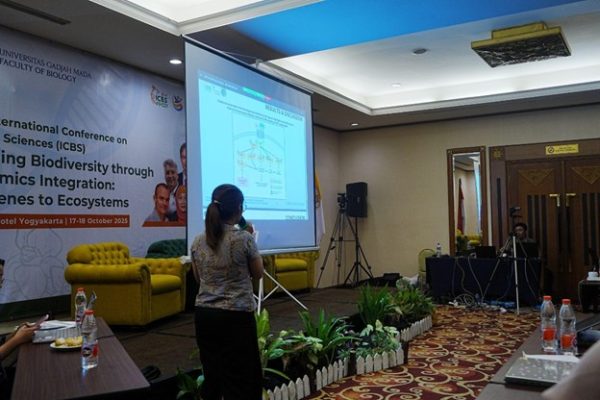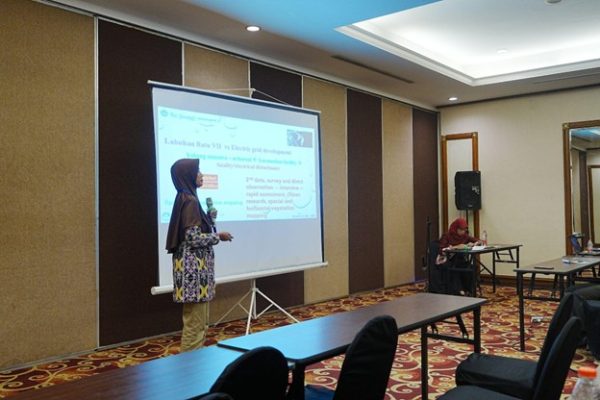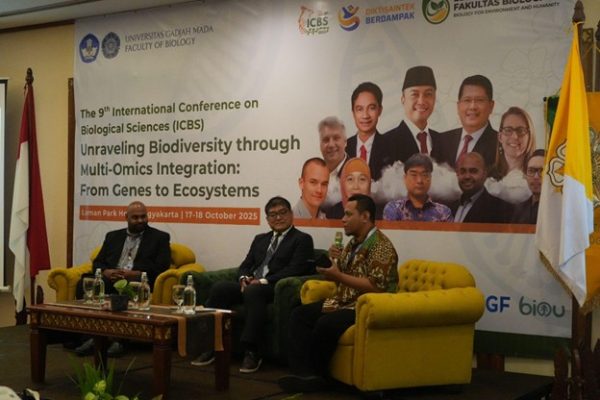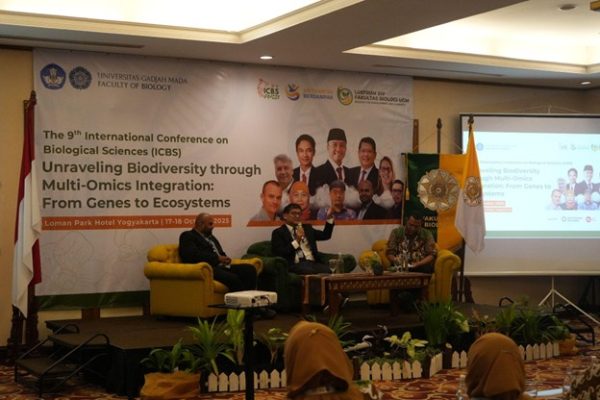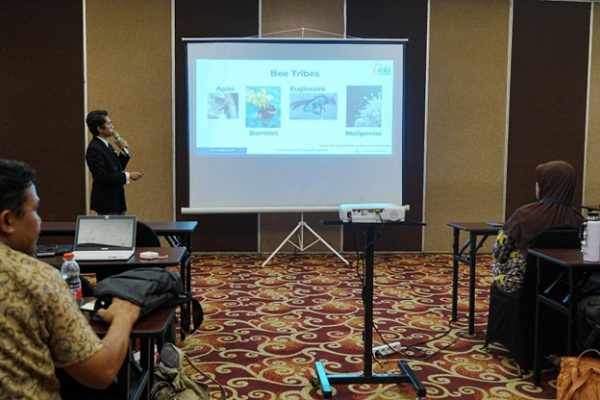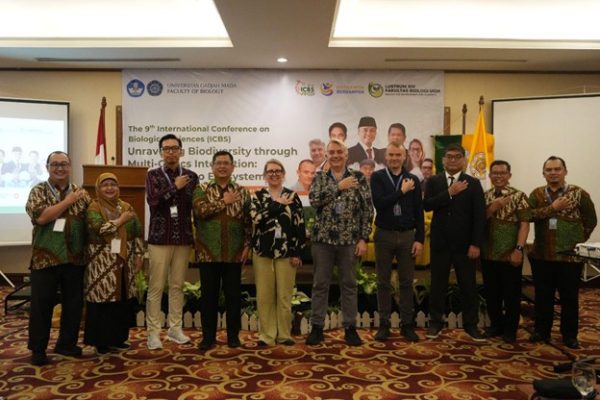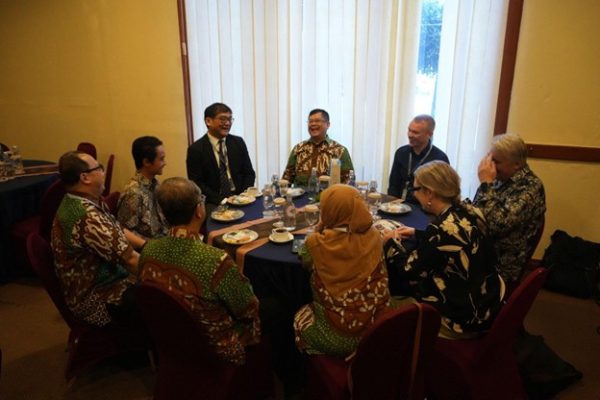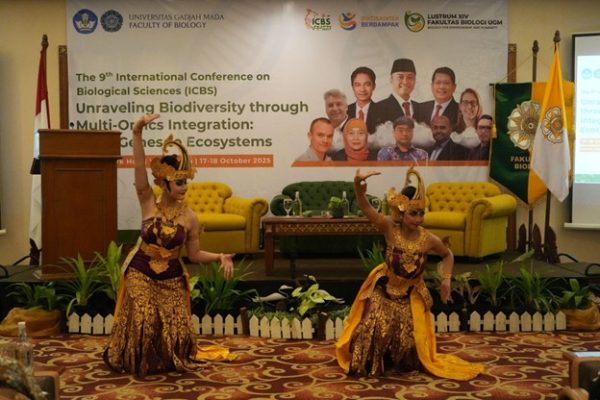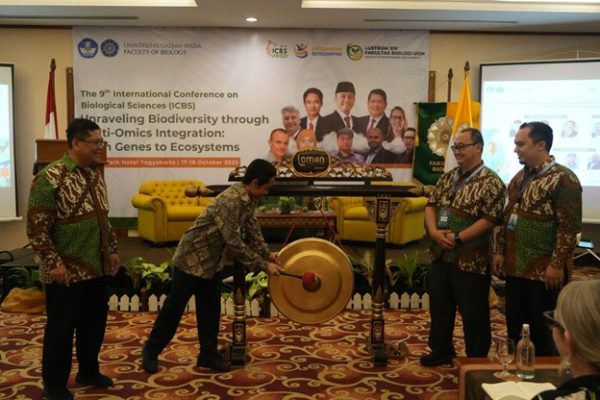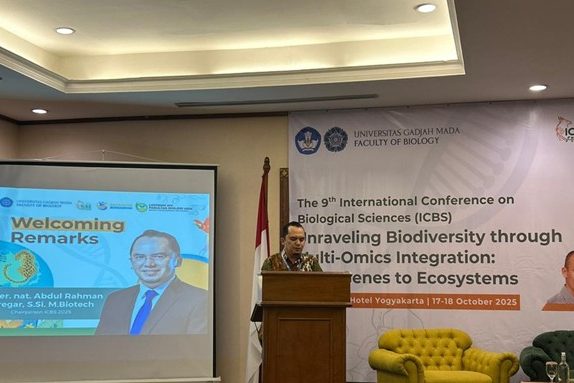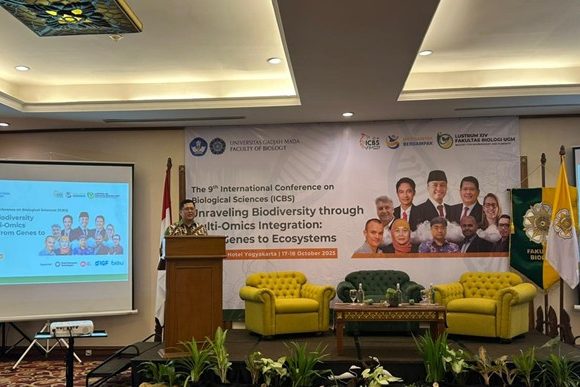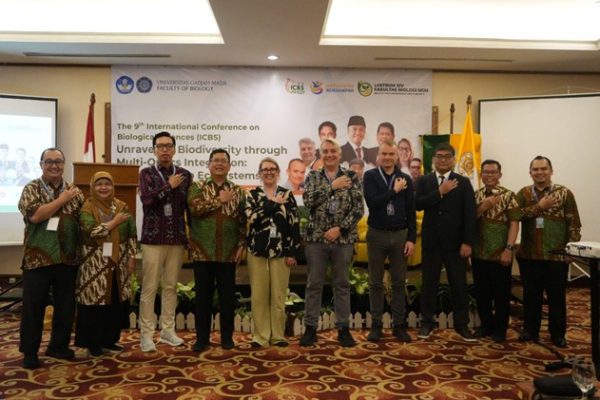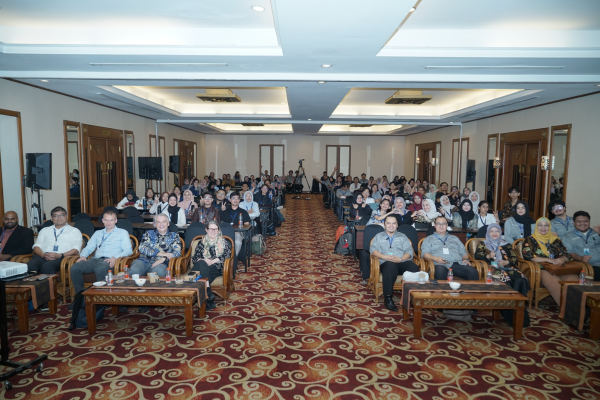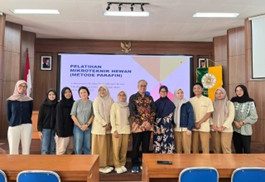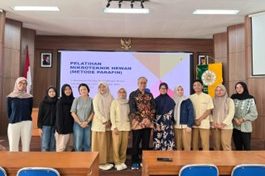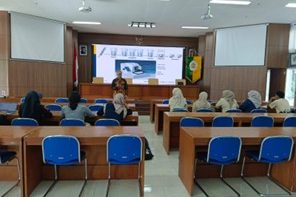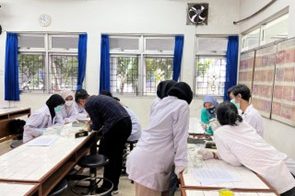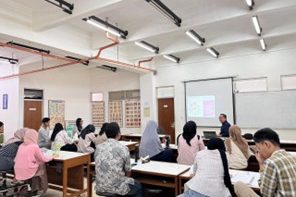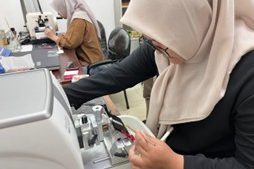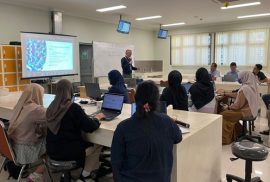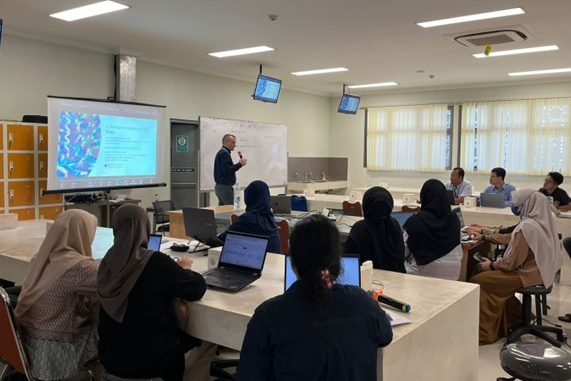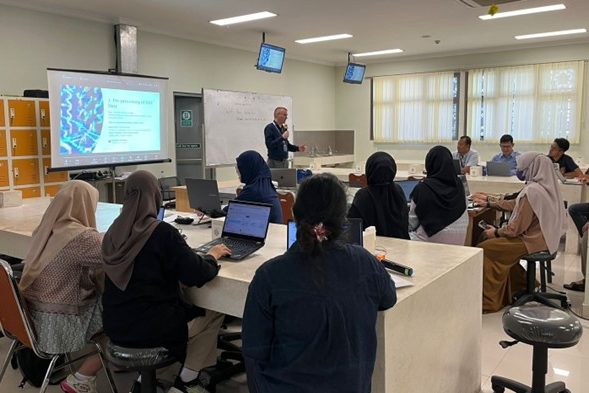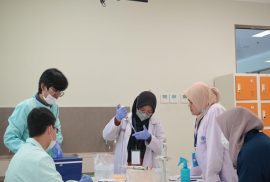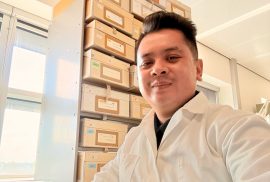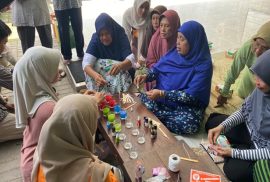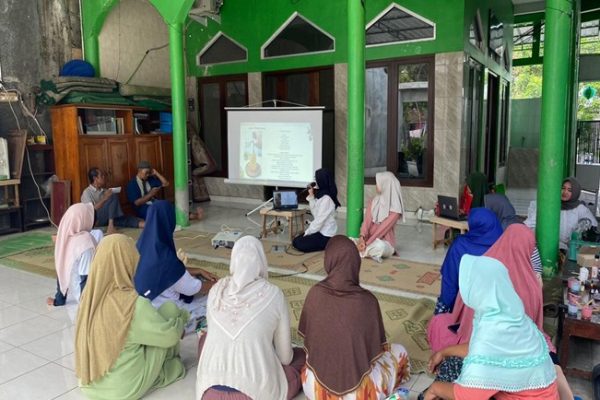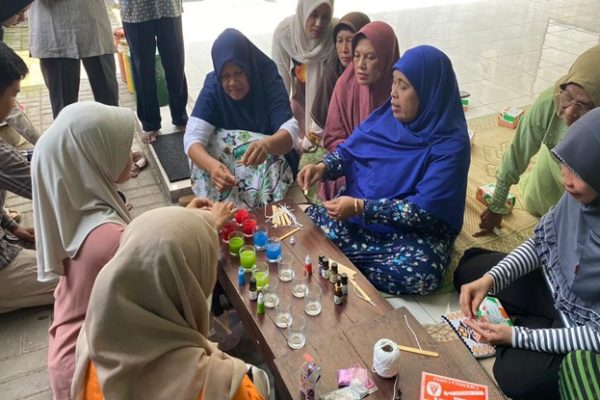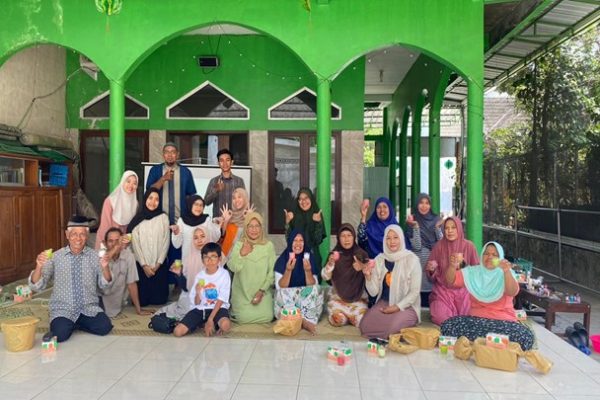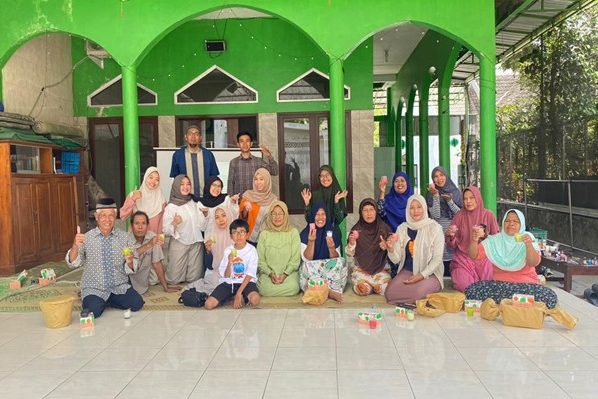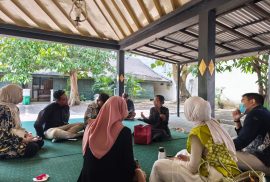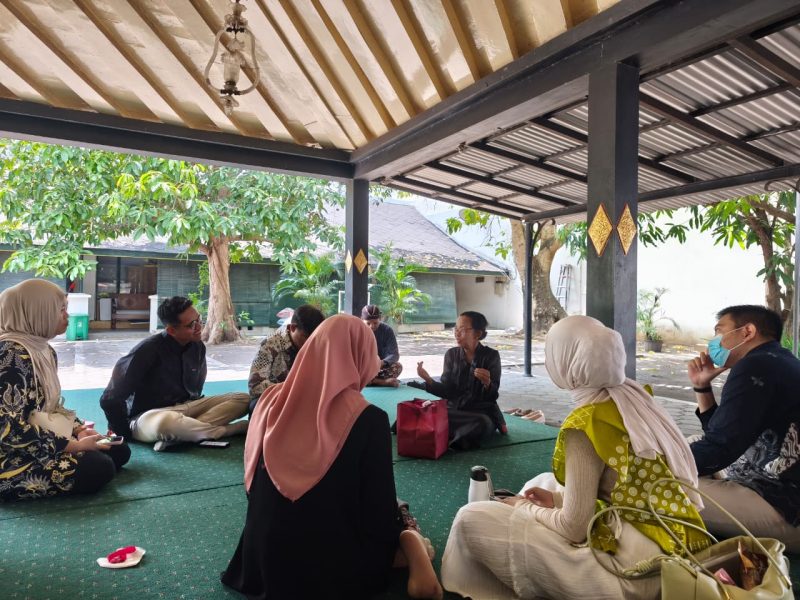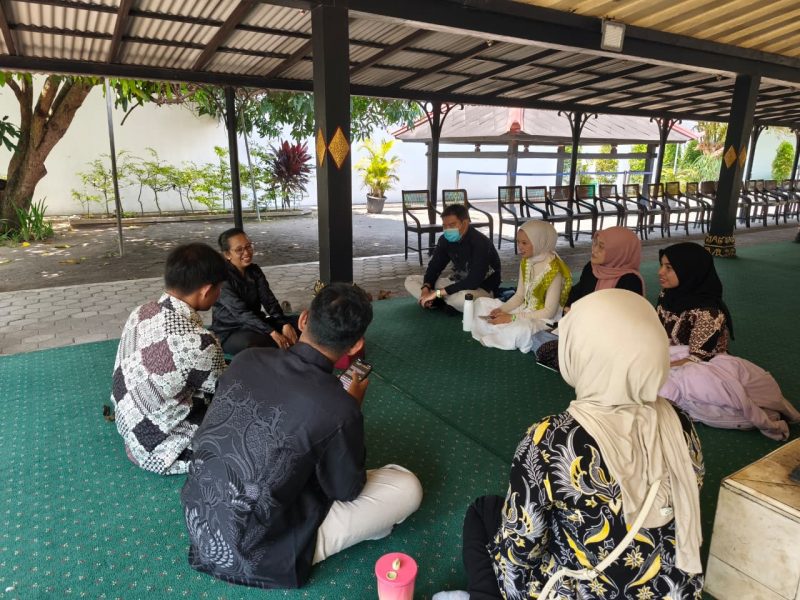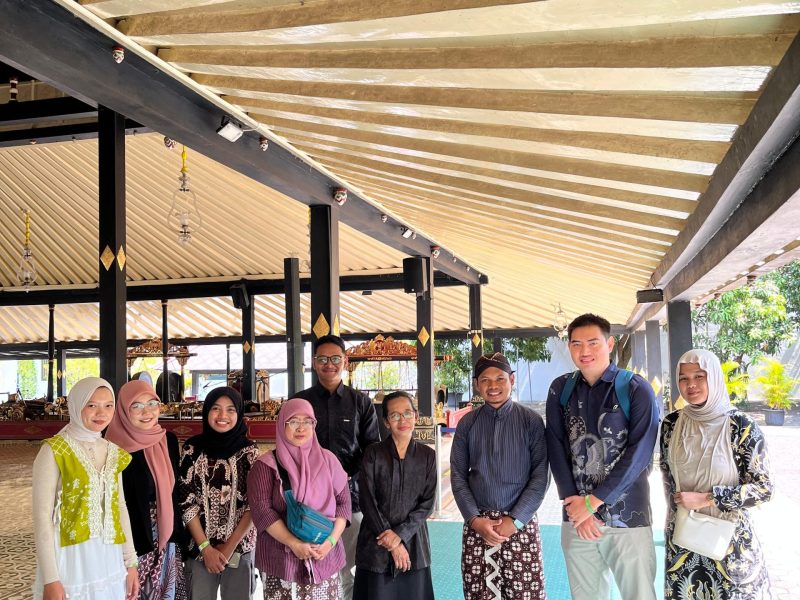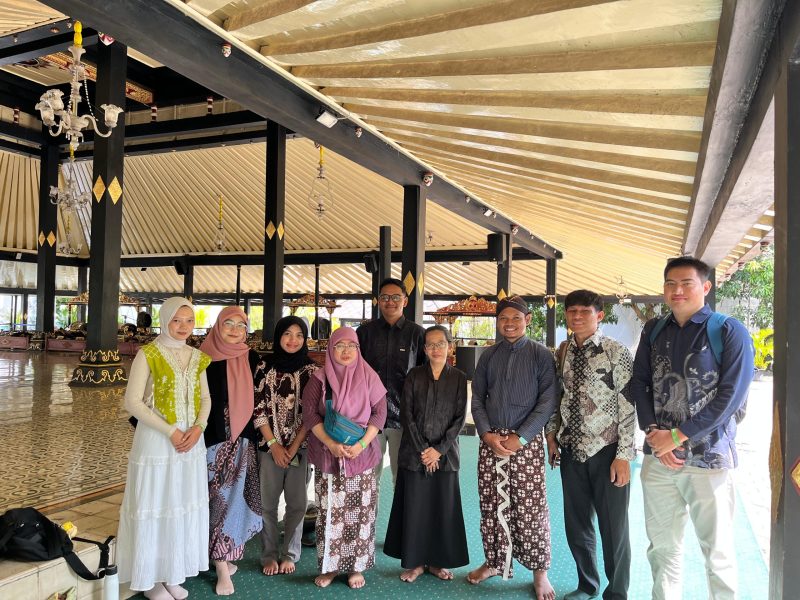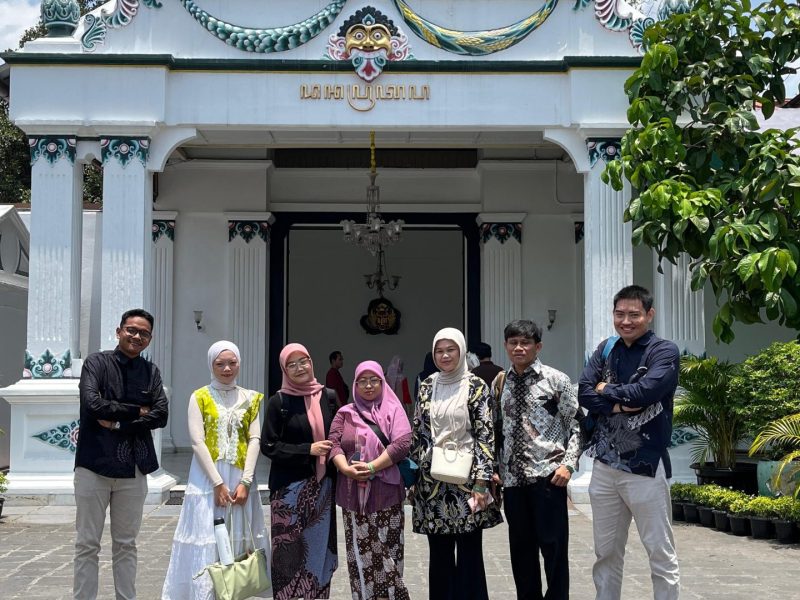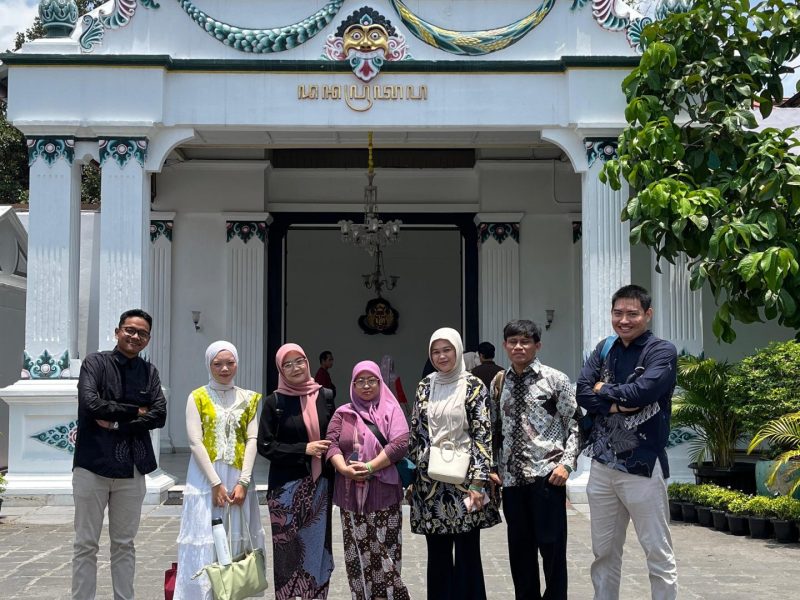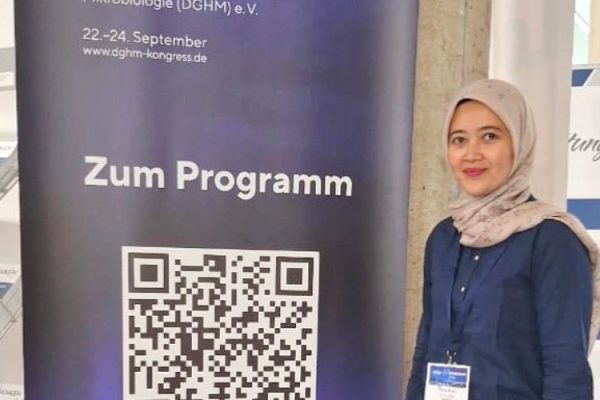On Saturday, September 27, 2025, students of the Master’s Program in Biology, Faculty of Biology, Universitas Gadjah Mada, who are enrolled in the Ethnobiology course, participated in a unique field lecture held at the Yogyakarta Palace (Keraton Yogyakarta). The session, which began at 11.00 a.m., took the form of an open discussion on cultural wisdom within the Palace environment and its relationship to biodiversity. The students, accompanied by the course lecturer, Dr.Eng. Zuliyati Rohmah, S.Si., M.Si., engaged in an interactive discussion with two speakers representing the Palace: R.A. Siti Amirul Nur Sundari (Carik Kawedanan Radyo Kartiyoso) and Mas Jajar Praba Hanendra (Mas Irmawan).
The activity began with introductions between the students and the speakers, followed by a brief explanation of the genealogy of the Yogyakarta Palace, the meaning of candrasengkala (symbolic inscriptions) on palace buildings, and the etiquette of dressing within the royal grounds. The main discussion then focused on cultural wisdom and its connection to biodiversity. The speakers explained that many plants growing within the Palace grounds hold specific symbolic meanings and ecological functions. Some of these—such as beringin (banyan), sawo kecik, gayem, and kepel trees—are cultivated and maintained with special care by the Palace. There are also naturally growing plants, such as various ferns that attach themselves to large trees.
Through this activity, students not only learned about the close interrelation between culture and the environment but also came to understand that biodiversity conservation has long been an integral part of the cultural heritage of the Yogyakarta Palace.
The vegetation within the Palace grounds serves not merely as landscape decoration but carries deep philosophical and ecological significance in Javanese life, particularly within the royal setting. These plants are arranged meaningfully to serve various purposes—as shade providers, pollutant absorbers, water retainers, and windbreaks. According to R.A. Siti Amirul Nur Sundari, each plant in the Palace embodies both symbolic and ecological roles that complement one another. She explained the meanings and functions of several important plants, including the beringin, gayam, jambu dersana, sawo kecik, and kepel.
Banyan Tree (Beringin): A Symbol of Sacredness and Life Sustenance
The banyan tree is regarded as sacred within the Palace grounds. Ecologically, it plays an essential role as a source of oxygen, a groundwater reservoir, and a habitat for various small animals and epiphytic plants. Due to its importance, only the Sultan has the authority to plant a banyan tree. The Sultan also prohibits excessive planting of banyans to maintain biodiversity and prevent a monoculture environment that could threaten other plant species. Additionally, the tree’s large, spreading roots can damage building foundations and drainage systems if planted too close to infrastructure.
Jambu Dersana: A Symbol of Serenity and Inner Peace
The jambu dersana symbolizes tranquility and calmness. The word durs refers to rain that brings coolness and peace. This philosophy teaches that anyone entering the Palace area should carry an aura of peace and composure, both outwardly and inwardly. It reflects the importance of emotional intelligence, calmness, and courtesy within the Palace setting.
Gayam Tree: Strength and Balance
The gayam tree represents resilience and stability. It thrives even under harsh conditions, symbolizing steadfastness, purity, and balance in life. This value teaches that individuals entering the Palace should maintain harmony between nature and spirituality.
Sawo Kecik: Patience and Virtue
The sawo kecik tree symbolizes patience and perseverance. Its sweet fruit takes a long time to ripen, representing that goodness and wisdom are achieved through time and effort. In Javanese philosophy, the word sawo is associated with refinement and gentleness. Though modest in appearance, the fruit’s sweetness and nutritional value reflect the idea that a person’s true worth lies in their words and actions, not in outward appearance—echoing the Javanese proverb, “Ajining diri saka lathi, ajining raga saka busana” (One’s dignity comes from their speech, one’s honor from their attire).
Kepel: A Symbol of Purity, Grace, and the Soul of a Warrior
The kepel tree holds profound meaning in Javanese royal culture. It symbolizes purity and inner fragrance—traits of a person who is virtuous, gentle, and pure-hearted. The kepel also embodies the noble qualities of a Javanese warrior, summarized in four philosophical principles: nyawiji (unity and harmony), greget (enthusiasm), sengguh (self-confidence), and ora mingkuh (responsibility and perseverance).
Philosophically, these four values represent stages of a warrior’s inner journey—beginning with unity and dedication to one’s duty (nyawiji), fostering passion and commitment (greget), building confidence (sengguh), and culminating in integrity (ora mingkuh), which signifies resilience in the face of challenges. Within the Palace, kepel trees are typically planted in sacred areas or near the keputren (the royal women’s residence). Being a rare species, its conservation is carried out by the Palace in collaboration with supporting institutions to ensure its preservation.
Beyond their symbolic and ecological meanings, many plants are also used in traditional ceremonies and daily activities within the Palace, reflecting a balance of local wisdom, cultural symbolism, and environmental sustainability.
A notable example is the Yasa Peksi Burak ceremony, held to commemorate the Prophet Muhammad’s Isra Mi’raj. In this ritual, the Palace creates a bird replica symbolizing Buraq, the Prophet’s mythical mount, crafted from pomelo peel. The base of the figure is decorated with a nest made of pacar leaves and layers of fruits, representing beauty and prosperity.
Other traditional practices, such as thanksgiving ceremonies, feature
polo-poloan, a classification of foods derived from plants with distinct growth characteristics:
- Polo Kesimpar: fruits growing along the ground, such as watermelon, melon, and cantaloupe.
- Polo Pendem: underground crops like yam, cassava, potato, taro, and peanut.
- Polo Gantung: fruits growing above ground, hanging from trees such as mango, guava, pomelo, and grape.
In addition to ceremonial use, plants also play practical roles in daily palace life. For instance, tamarind is used for cleaning royal carriages to enhance their durability, while lime and young coconut water are employed to cleanse royal heirlooms (keris) during the sacred month of Suro. These practices reflect how the Yogyakarta Palace preserves harmony between nature, spirituality, and tradition—continuing the legacy of ecological and cultural wisdom passed down through generations.
The meeting with Ibu Amirul and Bapak Irmawan left a profound impression on the students. They gained valuable insights into the use of plants and animals within the Palace and their connection to Javanese culture. The students came to appreciate the deep philosophy embedded in these traditions and their relevance to both ecological balance and cultural identity.
Ethnobiological knowledge passed down through generations represents a vital form of local wisdom that must be sustained. Through this study visit, students learned from the Palace’s conservation initiatives aimed at preserving rare and culturally significant plants. As Biology students of UGM, they felt a moral responsibility to contribute to the preservation of Indonesia’s native biodiversity.
Interactive and contextual learning experiences such as this not only enrich academic understanding but also foster a deeper appreciation for nature and culture. The activity left a lasting impression and inspired students to continue engaging in meaningful field-based learning.
This activity also aligns with several Sustainable Development Goals (SDGs), notably Goal 4 (Quality Education) through contextual learning based on local wisdom, Goal 11 (Sustainable Cities and Communities) through the preservation of cultural values and traditions, and Goal 15 (Life on Land) through the conservation of biodiversity and rare plant species within the Palace grounds. Thus, this activity not only strengthens students’ academic insight but also supports tangible contributions to sustainable development in Indonesia (GAL/ZR).
The activity was attended by graduate students from the Master’s Program in Biology, Faculty of Biology, Universitas Gadjah Mada, namely Mahyono Hassanudin, Ogilvy Galang Rizki, Arbiatun Nurlaili Assyifa, Syarafina Azzahra, Naufal Rafif Zain, Inez Maylida, and Ani Saputri.

